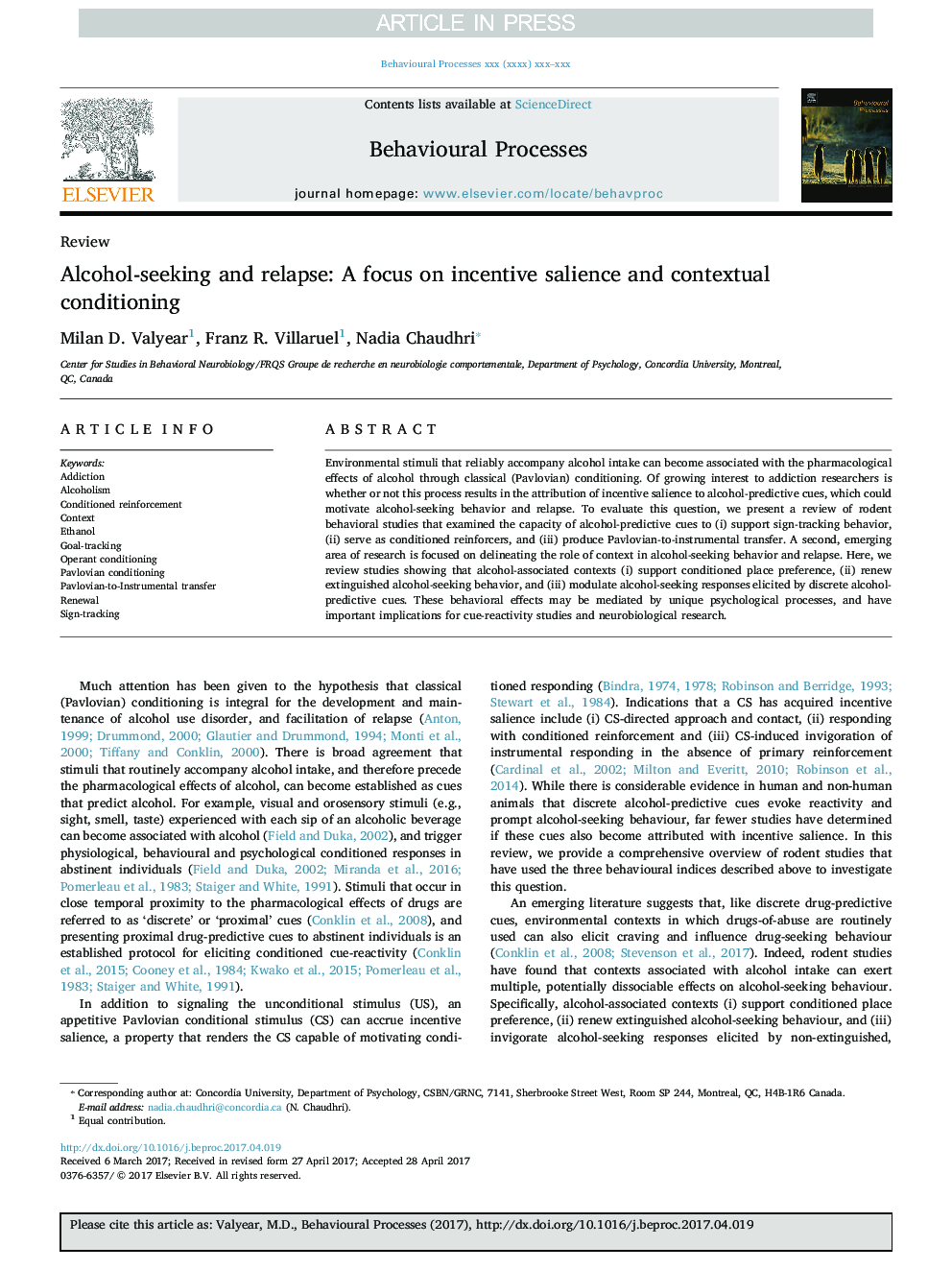| Article ID | Journal | Published Year | Pages | File Type |
|---|---|---|---|---|
| 5539617 | Behavioural Processes | 2017 | 7 Pages |
Abstract
Environmental stimuli that reliably accompany alcohol intake can become associated with the pharmacological effects of alcohol through classical (Pavlovian) conditioning. Of growing interest to addiction researchers is whether or not this process results in the attribution of incentive salience to alcohol-predictive cues, which could motivate alcohol-seeking behavior and relapse. To evaluate this question, we present a review of rodent behavioral studies that examined the capacity of alcohol-predictive cues to (i) support sign-tracking behavior, (ii) serve as conditioned reinforcers, and (iii) produce Pavlovian-to-instrumental transfer. A second, emerging area of research is focused on delineating the role of context in alcohol-seeking behavior and relapse. Here, we review studies showing that alcohol-associated contexts (i) support conditioned place preference, (ii) renew extinguished alcohol-seeking behavior, and (iii) modulate alcohol-seeking responses elicited by discrete alcohol-predictive cues. These behavioral effects may be mediated by unique psychological processes, and have important implications for cue-reactivity studies and neurobiological research.
Keywords
Related Topics
Life Sciences
Agricultural and Biological Sciences
Animal Science and Zoology
Authors
Milan D. Valyear, Franz R. Villaruel, Nadia Chaudhri,
